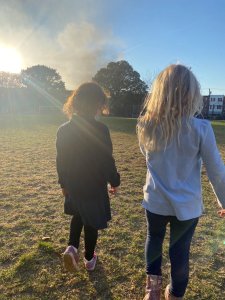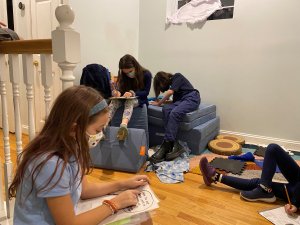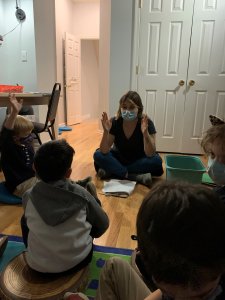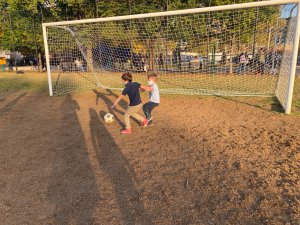What a beautiful week, I am continuously amazed by your children’s thoughtful insights. This week we learned about conditional and unconditional love. Learners reflected on different kinds of love, what change means for love, and what unconditional love looks and feels like.

We sat down in the yard for snack at the beginning of the week and read Pirkei Avot 5:16:
“All love that depends on something, [when the] thing ceases, [the] love ceases; and [all love] that does not depend on anything, will never cease.”
We began by considering toys that we used to love but no longer love and reflected on why that might be.
“What is a toy that you used to love but you no longer love?” I asked. Learners answered thoughtfully as they passed each other the talking stick.

One learner explained: “I used to have a doll, I loved her but now I am not interested in dolls. My love for the doll depended on my interests and those have changed. Now I like to play Minecraft.”
Many students gave examples and we practiced noticing what the love for these toys of the past depended on.
“If I say I love the summer but then I no longer feel that way when it’s raining in the summer, what’s the condition?” I asked.
“Sunshine!” many students eagerly called out.
Another learner shared: “I have a stuffy at home that I’ve had ever since I was born, now it is raggedy and his ear is torn off but I still love it so I guess that means it’s unconditional!”’

“So, what is an example of unconditional love, a love that does not depend on a thing?” I asked.
A third learner chimed in: “I love my family and family is family so you are with each other no matter what.”
“When you feel mad at your family, do you still love them?” I asked. “Yes I do,” they replied earnestly.
As we continued this discussion into the week we began to apply these concepts to our relationships with people more specifically.
A kiddo offered a story: “I had a friend, I think my parents forgot about her because I don’t see her very much and we are not close anymore.”

We thought about how it can be hard to keep relationships as close when something big changes, like time spent together or common interests. Together we decided that relationships might change, end, or be conditional, but these factors do not necessarily make them less valuable.
At the end of the week, we read Bitter and Sweet by Sandra V. Feder. Learners noticed that Hannah, the main character, is moving just like we are at Makom South Philly. We concluded that change can be bitter, when relationships with places, people, and even toys end it can be hard. Even though bitterness can feel scary, oftentimes changes can allow us to grow, so looking for the sweet parts is one way to make change feel easier.
I am constantly in awe of these kiddos and their brilliant minds! Next week we’ll be closing Unit One, wow time flies when you are having fun!

